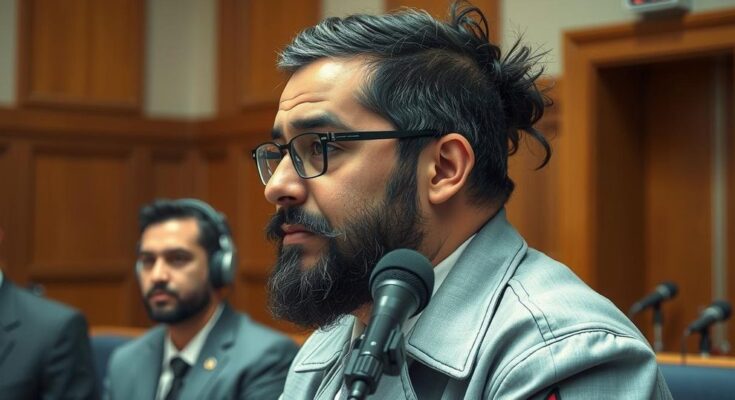Said Ait Mahdi, a Moroccan activist, was sentenced to three months in prison for leading protests against the government’s poor response to the September 2023 earthquake that devastated the Al Haouz region, resulting in nearly 3,000 deaths. Accused of defamation and inciting unrest, his sentence has drawn condemnation from human rights advocates who decry it as politically motivated. Despite the outcry, other activists continue to demand accountability and increased governmental support for reconstruction efforts.
In Morocco, prominent activist Said Ait Mahdi has been sentenced to three months in prison following protests criticizing the government’s inadequate response to a catastrophic earthquake. Operating in the Al Haouz region, which was devastated by the 6.8-magnitude tremor in September 2023, Ait Mahdi’s prosecution is seen by human rights advocates as politically motivated. The activist, who leads one of the prominent local advocacy groups, received additional financial penalties exceeding $1,000, primarily facing charges of defamation, assault, and inciting unauthorized protests. Protests erupted following the earthquake, during which nearly 3,000 individuals lost their lives and extensive damage was inflicted on homes and infrastructure throughout the region. Although Ait Mahdi’s sentence is notably less severe than the typical one-year prison term associated with similar charges, it nevertheless signifies a concerning trend towards the suppression of dissent in Morocco. Other activists whose charges mirrored Ait Mahdi’s were acquitted recently, raising questions about the selective use of legal consequences against political opposition. Civil rights organizations, including the Moroccan Association for Human Rights, have strongly condemned Ait Mahdi’s arrest, characterizing it as retaliation against his advocacy for affected communities. Furthermore, an alliance of NGOs and left-wing political factions has described the charges as part of a broader effort by the Moroccan government to obscure serious grievances regarding its earthquake response. Amid these developments, there is increasing public outcry demanding accountability and a more expeditious recovery process from the Moroccan authorities.
The Moroccan activist community has faced significant repression in the wake of a devastating earthquake that struck the Al Haouz region in September 2023. With nearly 3,000 fatalities and substantial infrastructural damage, many local residents expressed discontent regarding the government’s slow recovery efforts. This dissatisfaction catalyzed protests, highlighting regional inequities and inadequate disaster responses, particularly in areas populated by indigenous minorities who have historically experienced marginalization. Amid this turmoil, the case of Said Ait Mahdi represents a broader struggle for civil liberties and the right to protest within Morocco, as activists continue to demand transparency and quick recovery measures from the authorities. The government has pledged substantial financial assistance for reconstruction, totaling over $11.5 billion, yet many believe that it has not materialized adequately, exacerbating social unrest.
Said Ait Mahdi’s recent sentencing underscores the ongoing tensions between Moroccan authorities and activists seeking accountability in disaster response. His case illustrates a pattern of punitive measures against dissenting voices amid calls for effective governmental intervention in the aftermath of the catastrophic earthquake. As civil rights organizations continue to advocate for Ait Mahdi and others facing similar charges, the situation reveals a critical juncture for civil liberties in Morocco. The public’s demand for rapid recovery efforts juxtaposes against the government’s substantial financial commitments, accentuating the urgency for action to restore trust and support in the affected communities.
Original Source: www.newsday.com




